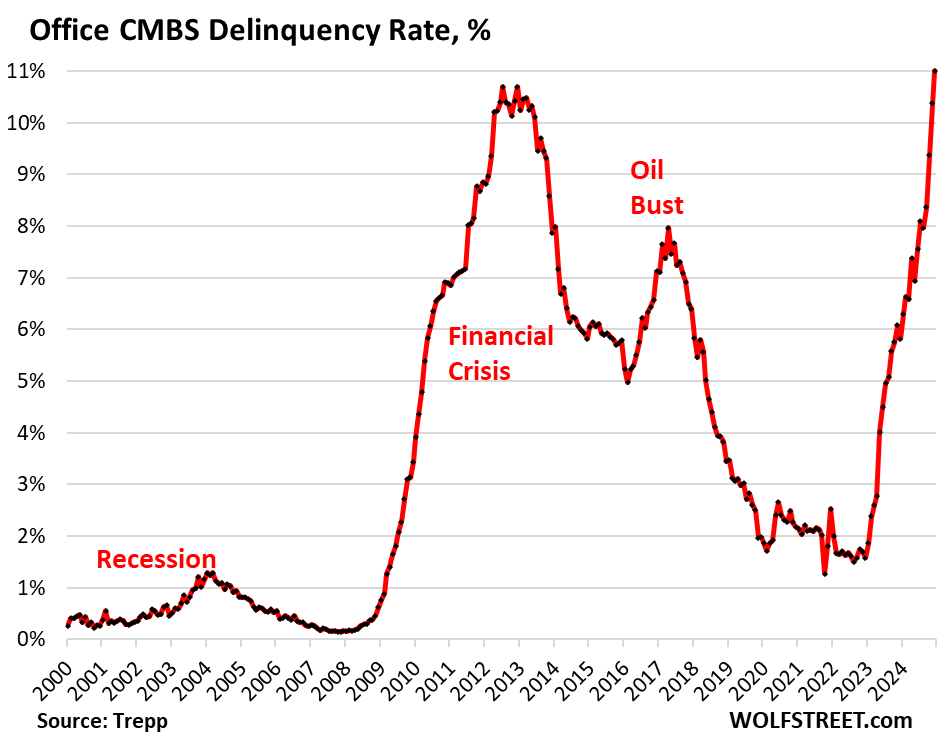Energy News Beat
- President Donald Trump announced the $500 billion AI project, Stargate, earlier this week.
- Stargate’s first data center is under construction in Abilene, Texas, said Oracle CTO Larry Ellison.
- Public filings for an Abilene development matching Ellison’s description shed some light on costs.
Construction on what appears to be two buildings on Stargate’s first data center campus, now underway in Texas, is expected to be complete by the end of the year and cost an estimated $1.1 billion, according to public filings.
President Donald Trump announced the formation of Stargate, a joint venture between Oracle, OpenAI, and SoftBank, at a White House press conference on Tuesday. He pledged to spend $500 billion building AI data centers in the US.
Oracle founder and CTO Larry Ellison, who joined Trump, OpenAI CEO Sam Altman, and SoftBank CEO Masayoshi Son at the briefing, said the first Stargate data centers are currently being built in Abilene, Texas.
“We’ve been working with OpenAI for a while and Masa for a while. The data centers are actually under construction — the first of them are under construction in Texas,” said Ellison. “Each building is a half million square feet. There are 10 buildings currently being built, but that will expand to 20 and other locations beyond the Abilene location, which is our first location.”
Little else has been revealed about Stargate. Registration forms filed with the Texas Department of Licensing and Regulation for a data center development in Abilene matching Ellison’s description of Stargate give some insight into the cost of building the data centers.
The development is registered with the TDLR under the name “Project Ludicrous,” located at an address attached to the Lancium Clean Campus — a 1,000-acre site in Abilene owned by energy tech company Lancium. The owner of Project Ludicrous is listed as Abilene DC 1 LLC, an affiliate of data center development startup Crusoe. According to the Texas state comptroller’s records, Oracle is the occupant of the data center owned by Abilene DC 1, LLC, located at the Lancium Clean Campus in Abilene. A Texas-based Oracle employee is also listed as the tenant contact for Project Ludicrous in the TDLR filings.
Between July and December 2024, agents for Project Ludicrous filed four different TDLR filings for two buildings.
Construction on the first building, a 482,000-square-foot one-story “data hall” estimated to cost $292 million, began in June 2024 and is scheduled to be completed by May 30, 2025. The estimate also includes plans for a guard house, fire pump building, and mechanical and electrical enclosures. A second filing for the building, made in September, indicates that tenant improvements costing $140 million began in December and are expected to be completed by September 15, 2025.
A second building registered under Project Ludicrous, a 484,960-square-foot “1-story data center” with a cost estimate of $292 million, went under construction in September and is expected to be completed in one year, the filings said. Tenant improvements, expected to begin in March and be completed by December 24, are estimated at $384 million.
The San Antonio Express-News previously reported on these filings.
Lancium, the landowner, first struck a development deal with the city of Abilene in 2021 for what it calls the Lancium Clean Campus. The site was initially meant to power bitcoin mines with renewable energy generation, although that never came to fruition.
In November, Crusoe announced plans for a $3.4 billion data center development on the Lancium Clean Campus and said it had already fully leased the space to a “Fortune 100 hyperscale tenant,” with occupancy expected to begin in the first half of 2025.
The Information first reported Oracle’s plans to lease a data center site in Texas from Crusoe, intending to eventually rent servers to OpenAI.
In a post on its website, OpenAI said that the Stargate “buildout is currently underway, starting in Texas, and we are evaluating potential sites across the country for more campuses as we finalize definitive agreements.”
“Lancium is excited to be building its Lancium Clean Campus in Abilene, Texas, in partnership with Crusoe and the Development Corporation of Abilene (DCOA) and to be at the forefront of the growth of the AI infrastructure industry in the US,” a spokesperson for Lancium wrote in response to a request for comment from Business Insider. The spokesperson said the company could not “provide any new commentary about Abilene or any of our other Clean Campuses.”
Oracle, OpenAI, and Crusoe did not immediately respond to requests for comment. Source: Contact Ellen Thomas via the secure messaging app Signal at +1-929-524-6964.
The post Stargate’s first data center is underway in Texas. Public filings show how much it will cost to build. appeared first on Energy News Beat.






















